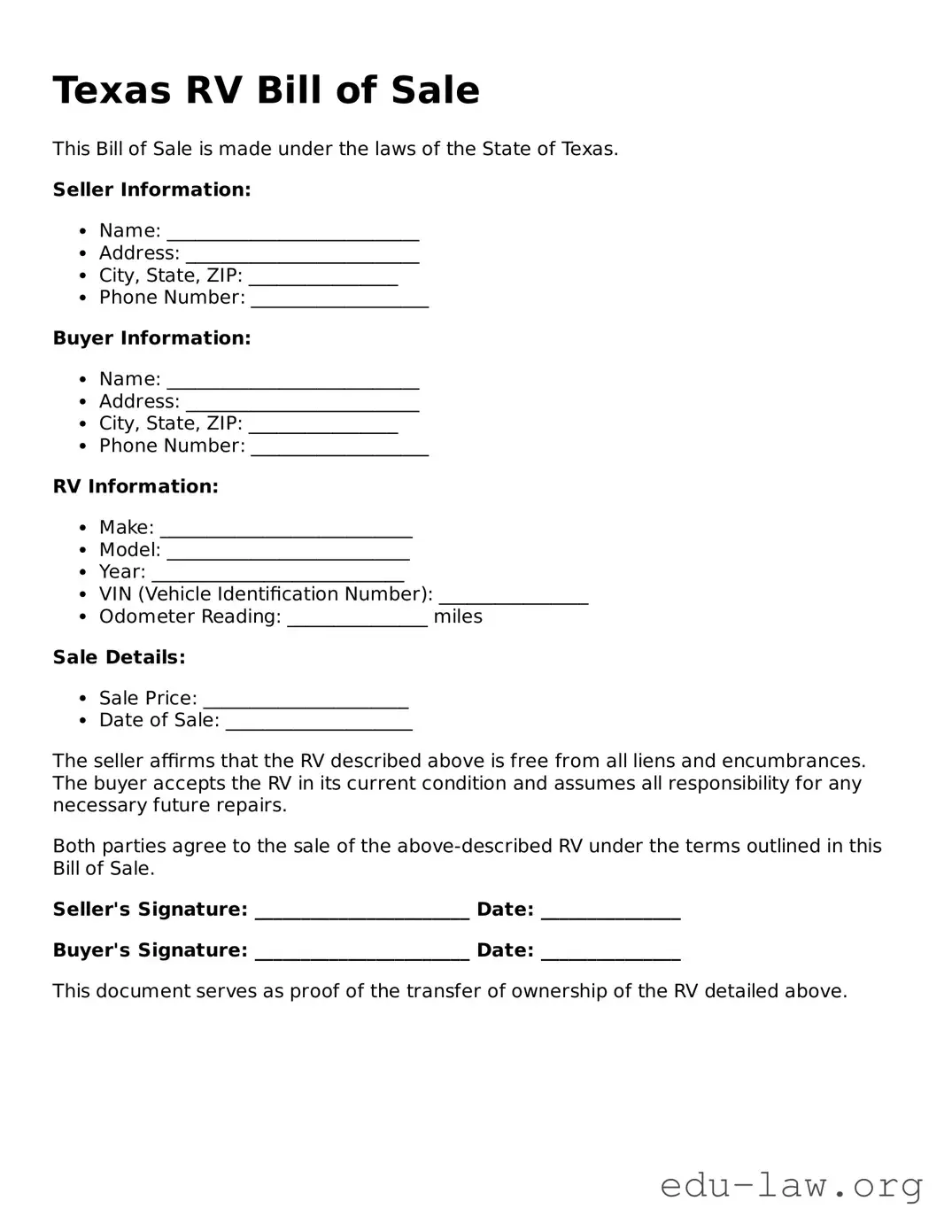The Texas Automobile Bill of Sale is similar to the RV Bill of Sale in that both documents serve to formally transfer ownership of a motor vehicle. Each document contains essential information, such as the seller's and buyer's names, vehicle identification numbers, and a description of the vehicle. They also function as legal proof of the transaction, which is crucial for registration and titling purposes in Texas.
The Texas Boat Bill of Sale operates under a similar premise as the RV Bill of Sale. When someone sells a boat, the seller needs to provide the buyer with a Bill of Sale, which outlines the necessary details of the transaction. This document ensures that ownership is clearly established, providing protection for both parties and facilitating the registration process with the state.
A Motorcycle Bill of Sale bears resemblance to the RV Bill of Sale as well. Both documents capture the particulars of the bicycle, such as make, model, and VIN, alongside the buyer's and seller's information. This is critical for transferring ownership and offers legal proof that a sale took place, thereby enabling the new owner to register the motorcycle with the Department of Motor Vehicles.
The Texas Tractor Bill of Sale is related to the RV Bill of Sale in terms of its function to document the sale of agricultural or construction equipment. Similar to RV sales, details regarding the seller, buyer, item description, and price are included. This document plays a key role in providing a legal foundation for the transaction, helping to prevent any future disputes regarding ownership or payment.
The Texas Trailer Bill of Sale is comparable to the RV Bill of Sale as it documents the sale of a non-motorized vehicle. Like its counterparts, it includes pertinent details such as seller and buyer names, a description of the trailer, and the sale price. This document not only transfers ownership but also serves as evidence in case of disputes or claims related to the trailer.
A Mobile Home Bill of Sale is similar to the RV Bill of Sale, particularly as it pertains to transfer of ownership and legal responsibilities. It captures buyer and seller information, property description, and sale price. This document is especially vital for those intending to relocate a mobile home, as it might be required for both registration and titling with local authorities.
The Texas All-Terrain Vehicle (ATV) Bill of Sale shares a purpose with the RV Bill of Sale. Both documents establish ownership transfer and provide necessary details, such as descriptions and identification numbers. The documentation of the sale also facilitates registration, ensuring that the new owner can legally operate the ATV on public lands.
The Texas Houseboat Bill of Sale aligns closely with the RV Bill of Sale. It serves as a written record of the sale of a houseboat, including both parties' information and detailed descriptions of the vessel. Like other sale documents, it acts as proof of ownership, which is crucial for future transactions and legal operations.
The Texas Lease Agreement can be considered similar in certain contexts. While primarily a rental document, it establishes terms of agreement between the lessor and lessee regarding the use or rental of an RV. For individuals who may wish to rent out or engage in a lease-to-own scenario, this document can serve as a foundational agreement similar to a sale in essence and business function.
